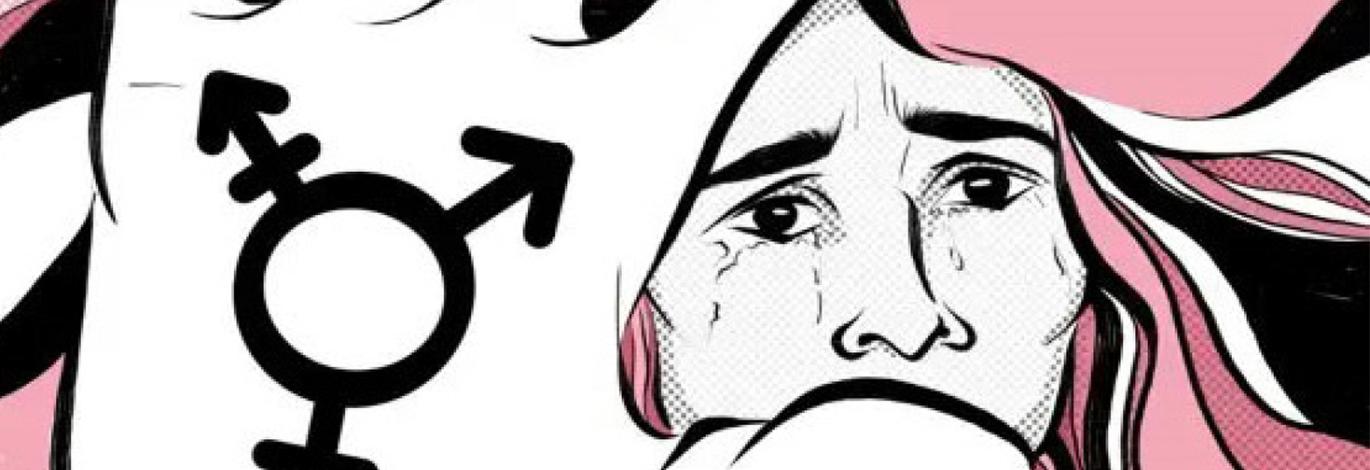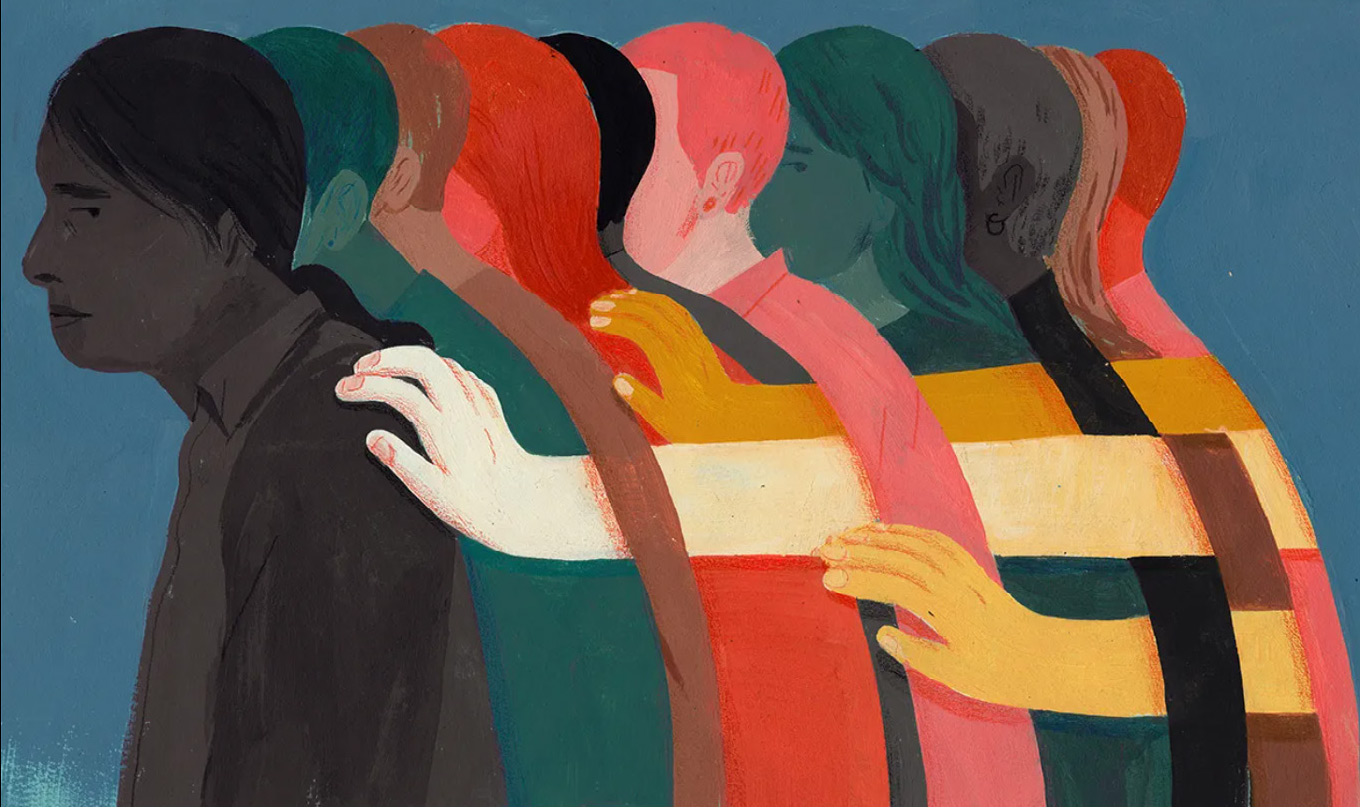
On 11th September 2018, Pari* and four companions travelling by rickshaw were abruptly stopped by police searching for a transgender who had reportedly stolen money and a phone. The group stepped out, cooperated, and went to the police-station on the promise of swift release once the culprit was found. However, instead they were subjected to an evening of abuse; unlawfully locked-up in jail and ordered to dance for their survival. Pari’s ‘crime’? Existing.
Pari was charged under the archaic vagrancy ordinances: colonial-era, draconian laws which criminalise poverty, and assert control over ‘undesirable’ marginalised groups. Under section 7 police, without warrant or magistrate authorisation, can stop-and-search any person who ‘appears to him’ as a vagrant. Defining ‘vagrants’ as those who solicit or receive alms: beggars. Under section 9, they risk facing 3 years of imprisonment, unless they are ‘first-offenders’, who the magistrate pardons.
But Pari, or her companions, weren’t begging. So why were they picked up?
Historically, vagrancy laws have been unjustly used to control free populations, emerging at notorious points  in history. Following the Black Death in 1348, which wiped out much of Europe’s workforce, these laws made it unlawful to reject work, ask for higher wages or give money to those ablebodied or deemed fit for work. These ultimately morphed from controlling specific behaviours, to controlling specific classes. Even the infamous Jim Crow Laws, regarding American racialsegregation, criminalised vagrancy.1 Action, or in-action, no longer mattered, only one’s class. Such policing can be traced to colonial times.
in history. Following the Black Death in 1348, which wiped out much of Europe’s workforce, these laws made it unlawful to reject work, ask for higher wages or give money to those ablebodied or deemed fit for work. These ultimately morphed from controlling specific behaviours, to controlling specific classes. Even the infamous Jim Crow Laws, regarding American racialsegregation, criminalised vagrancy.1 Action, or in-action, no longer mattered, only one’s class. Such policing can be traced to colonial times.
The Europeans exported their ideologies of differentiation and control to the sub-continent. In Europe they policed the poor, in the colonies they policed identity.
The Europeans exported their ideologies of differentiation and control to the subcontinent. In Europe they policed the poor, in the colonies they policed identity. The British’s comprehensive 1824 Vagrancy Act served as a blueprint for colonial vagrancy laws which controlled nonwhite populations, such as the Criminal Tribes Act 1871, which criminalised and restricted movement of certain tribes. Vague definitions and the exportation of this ideology, resulted in transgenders, religious-wanderers and beggars all being imprisoned in ‘native-only’ asylums.2 This ambiguity persists in the Punjab Vagrancy Ordinance, 1958, allowing police to arrest anyone they deem a vagrant.
But the question remains: Pari wasn’t a vagrant; she wasn’t begging or loitering, so why was she arrested?
But the question remains: Pari wasn’t a vagrant; she wasn’t begging or loitering, so why was she arrested?
Civilising missions used the ambit of the ‘vagabond’ to marginalise non-conforming identities, including sexualised-identities.3 Paris’ arrest highlights the overlap between vagrancy laws and the marginalisation of identities, specifically those which deviate from traditional gender norms.
This overlap manifests in the current legal framework as well. Section 17 of the Transgender Persons (Protection of Rights) Act, 2018, punishes anyone who ‘employs, compels, or uses’ a trans-individual for begging. Viewing this provision in tandem with the vagrancy ordinance, we identified three key interactions in the state pipeline: interactions with the police, the Magistrate, and the welfare home.
Police
While ‘compel’ in the Transgender Persons Act seeks to protect trans-individuals from being forced, through interviews and focus groups we learnt that it could interfere with their modes of kinship. In a focus group of 5 participants, 4 mentioned that this law was eroding the guru-chaila (teacher-student) relationship, as the guru teaches the chaila to collect alms. Pakeezah* mentioned that the police referred to the gurus as ‘mafia’ who were profiting off her effort and persistently asked her to take them to her guru. For the community, gurus hold a sacred place; Haseena* said that the police’s disingenuous characterisation of gurus further alienated her from society.
The words ‘employ’ and ‘use’ cause problems as well, as they target voluntary begging. In a focus group of 10 participants, all of them said that they were regularly confronted by the police for begging, who would ask them to move from the area. Some participants reported that the police would follow them until they moved, while some said that they would leave after asking them to go.
Police attitudes were harsh towards trans-beggars. SHO Sarwar Road, SHO Old Anarkali, and ASI Old Anarkali all contested that trans-beggars were ‘fake’ and constantly putting on an act. SHO Sarwar Road proudly mentioned that when he encountered them, he would make them take off their clothes, so that he could check their genitals and see ‘what they really were’. When asked why they would resort to such means, the officers gave different responses.
For SHO Sarwar Road, this was necessary. He believed that most trans-beggars fake their identity due to the popular belief that the prayers of khwajasiras hold greater weightage. Under the guise of prayer, they would trick the public and gather heaps of money. According to him, no ‘respectable’ person would ever beg. SHO Old Anarkali said that there was a logistical reason for doing this. The Punjab Police is plagued with the issue of low female staff. According to him, transgender women (identified as male at birth) were involved in begging more than transgender men.4 He told us that officers are allowed to arrest individuals of the same gender. By using their genitalia as the basis of identity, they were able to book them swiftly.
SHO Old Anarkali’s claims were false, however, as Police Rules, 1934, Rule 26.18-A does not specify the gender of an officer when committing an arrest. Gender is only specified for searches, as mentioned in Rule 26.3(1), which mentions that only female officers can search females under arrest, and that too with ‘due dignity’. Hence, they have no need to humiliate trans-beggars like this and can take them in for arrest without such measures.
Magistrate
What was most alarming was the Magistrate’s attitude. The Magistrate is perhaps the only place a trans-beggar can receive justice, as they have the power to either send them to jail, grant them bail, or send them to the welfare home. However, when we told Magistrate Kamran Zafar, specially appointed for the crime of vagrancy, that police would strip trans-beggars of their dignity with such practices, he chuckled and said that he does this himself. He believed that most of the non-binary beggars were not ‘real’ khwajasiras. They use the tag as leverage to earn sympathy. Therefore, for him, non-binary beggars are no different than other beggars. He told us of an incident where he made a khwajasira take off their clothes in the courtroom.
Welfare Home
SHO Sarwar Road proudly mentioned that when he encountered them, he would make them take off their clothes, so that he could check their genitals and see ‘what they really were’.
According to Section 3 of the Vagrancy Ordinance, the government is bound to establish welfare homes for the custody, detention, and rehabilitation of vagrants. When we visited these homes, we found that they had no place to keep transgenders. Asif Doggar, the head of the welfare home, told us that they couple transgenders with males or females, depending on the sex they were assigned at birth. A focus group participant, Bindiya*, who had spent time in the home, told us that she was uncomfortable sharing the space with men for 3 days.
While Asif Doggar understood that this was problematic as transgenders cannot feel comfortable in a place where they are misgendered, his hands were tied. The Punjab Social Welfare Department did not provide them with enough funds to create a separate space for transgenders, nor did the Magistrate send beggars to the welfare home for more than 3 days. Asif Saab contested that 3 days were not enough to rehabilitate beggars and teach them skills. Bindiya* said that after being released from the welfare home, she had to arrange for transport herself from Raiwind all the way to the other side of the city where her home was, costing her an arm and a leg.
Under the law, trans-beggars have limited routes. First, they are picked up by the police, and taken to the Magistrate, who can decide to either let them go, send them to jail, or send them to the welfare home. Interviews and data collection showed that no route trans-beggars were subjected to under the law was fruitful and no positive outcome emerged from these laws. Beggars would be picked up, detained by the police for 24 hours, granted bail, and taken back to where they were found, only to begin begging again.
When talking to the Superintendent of Jails in Lahore, we learnt the other route, where vagrants are sent to jail, is rarely taken. The last route was the welfare home, where they were misgendered and forced to spend 3 days in the home near Raiwind Road, after which they would have to find their own way of getting back to their homes.
Even worse is the cycle of poverty perpetuated by these laws and the state. Those that went to the beggar home said that their money would be taken by the police, and they would have to beg to find the means to get back to their homes.
Even worse is the cycle of poverty perpetuated by these laws and the state. Our research participants mentioned that they often have to collect alms in order to bail out members of the community. Those that went to the beggar home said that their money would be taken by the police, and they would have to beg to find the means to get back to their homes.
Due to a long history of oppression, and a lack of social infrastructure, transgenders are heavily disadvantaged within society. The state fails them by not allowing them to have the same opportunities as everyone else. However, it goes a step further and blames them for the state of poverty and marginalisation they are forced to live in. These anti-poor laws ensure that marginalised identities are caught in this vicious pattern where they are not only criminalised for their existence, but for their means of living. Carrying colonial mindsets, the state apparatus deems trans-beggars a threat and places them under constant supervision and scrutiny, even in their kinship practices.
With the intersection between vagrancy laws and gender, the state sends a clear message to trans-beggars: it would rather they be removed from society than be able to feed themselves.
*Names have been changed for safety purposes
The writer is a fifth year BALLB student at LUMS with a special interest in poverty and environmental law.
